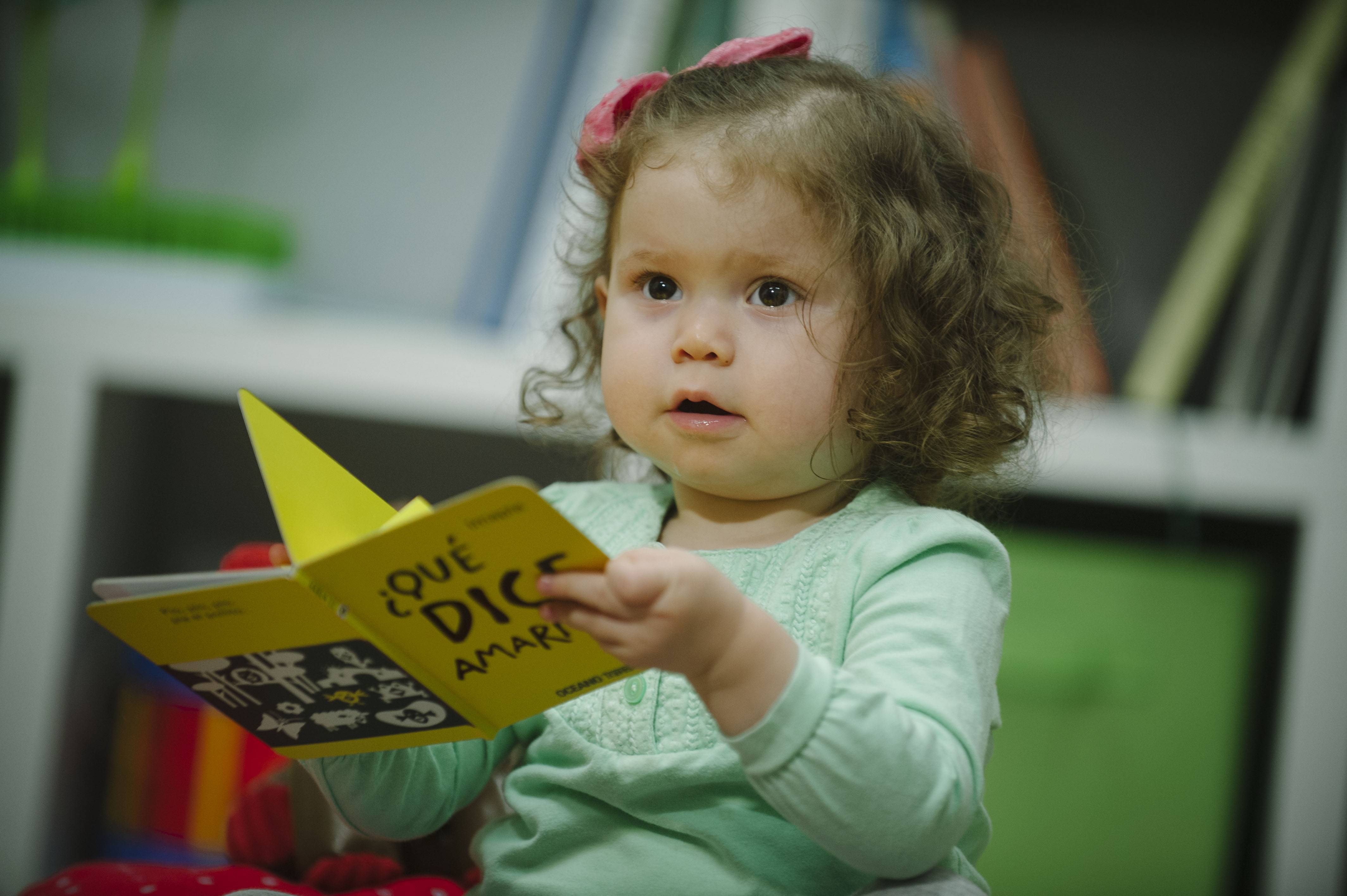Key points:
- Baby’s language development begins before first words.
- First attempts at language include cries, coos, and babbling.
- First words typically appear around 12 months.
- Talk, read, and interact to stimulate linguistic development.
Your baby’s language will start developing before she even utters their first word. They’ll be tuning into the outside world from the womb, listening to your voice and change of tones. They’ll continue doing this during the first months, figuring out what the rules of language are and observing how grown-ups around them use it to communicate. Keep reading to learn more about your baby’s linguistic development.
Their first attempts at language will be no more than cries, coos, and gurgles that will turn into babbling vowel and consonant combinations in the third or fourth month. You’ll learn that language is more than words –smiles and different cries will communicate pleasure or displeasure.
Usually, babies say their first word at around 12 months, but this does not mean it can’t happen before! Babies tend to make a variety of sounds at six months and try to talk. However, when they say their first word, the connection between “mama” or “dada” and you might not be present yet. You’ll have to wait a little bit longer for that! However, your baby probably understands way more than they can say at most points. So, avoid swearing so they don’t imitate you later on!
If you want more detailed information about your baby’s talking timeline, make sure to read our article on the topic.
Stimulating my baby’s linguistic development
There are several important things you can do to foster your child’s language development and, don’t worry, it’s not rocket science.
One of the most important things you can do is to talk to and around your baby.
It doesn’t need to be nonstop chatter, but talking to your baby will expose them to new vocabulary and the attention they need to develop their language skills. Parentese or baby talk –or the melodic and high-pitched tone many adults use to talk to babies– is specially tailored to help a baby’s brain to learn, so don’t be afraid to use it.
Another thing to do is to read to your baby.
A few minutes a day will teach them about sentence structure, tones, and will keep them entertained! Your little one will be learning new words at an incredible rate, so books are also a good way to change up the vocabulary they usually hear at home.
Narrate your daily routine.
You can talk about what you are doing so your little one can connect words with objects and actions. Try saying things like “I’m washing my hands” or “I’m sitting on the couch”, and while you play with them, also explain what you are doing.
Listening and giving positive feedback can boost your child’s development.
Even though this last advice is the hardest to do, being responsive to your baby’s babbling –even though it sounds like nonsense– will encourage them to keep practicing. The same applies when they start saying their first words and short sentences!
One important thing to consider is that babies will only reap the benefits when a real, live person is talking to them. It can be easier to let your baby watch and listen to the TV or radio, but this might not have the same positive impact on their linguistic development as talking, reading, and listening to someone in real life. So, try our previous tips so your baby can become familiar with new words and language structures!
Remember, every child speaks at their own pace. However, there are things you can do to help. Kinedu has dozens of activities to stimulate your baby’s linguistic area, make sure to check them out! Here’s one of our faves!









One Response
It’s truly a great and useful piece of info. I’m happy that you simply shared this helpful information with us.
Please keep us informed like this. Thank you for sharing.